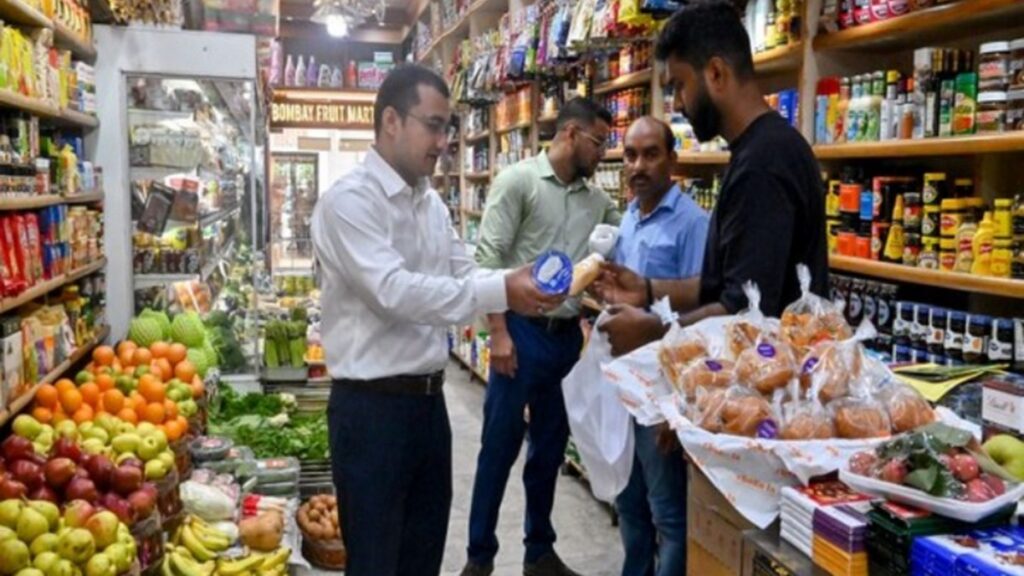Companies like ITC or Hindustan Unilever are in favor of direct selling by eliminating wholesalers and distributors.
After the online market, now quick commerce is increasing its dominance in the market to such an extent that the danger of closure of traditional grocery stores is looming. Today, the role of Zomato, Zepto and Swiggy is strong in the quick commerce market, while Big Basket, Amazon and many other companies are trying to make their place in it. These quick commerce companies are delivering goods directly and quickly to people’s homes and offices. Home delivery of everything from daily groceries to iPhones is now available within 10-15 minutes. People do not even need to go to the neighborhood grocery shop or market. According to Mint news, the declining importance of grocery in overall retail sales in India is also visible in the data.
What are the trade sector figures telling?
HowIndiaLives reports that as of 2015-16, the trade sector (including retail and wholesale trade) generated GDP of about $13 trillion. Of this, 34 per cent was from unincorporated enterprises or kiranas, a share which had increased by 4 percentage points from 2010-11, but this share fell sharply to around 22 per cent by 2023-24. In such a situation, to say that grocery shops are ending in India? It is too early to say this. However, a decline is also being seen in grocery stores.
Big companies are ready to sell goods directly
Today even big manufacturing companies are ready to sell goods directly. In such a situation, the need for separate companies doing supply or distribution work will be eliminated. According to Mint news, companies like ITC or Hindustan Unilever are in favor of direct selling, eliminating not only traditional retailers but also wholesalers and distributors. In such a situation, there will be no need for middlemen or agents. One disadvantage of this will also be that big companies will deliver their goods directly to customers at prices lower than traditional retail grocery stores. Now when there will be no income from traditional shops, people will depend on online mediums only.
the effect is happening like this
How e-commerce has impacted the retail market in India is indicated by the fact that about 31 percent of the goods of big FMCG companies like ITC have started being sold through digital platforms. For example, based on the acquisition of Blinkit, Zomato’s quick commerce business has seen its average monthly transaction customers increase from 29 lakh in 2022-23 to 51 lakh in 2023-24. The average gross order value of each of its dark stores in 2023-24 was around Rs 8 lakh per day. According to a survey conducted among 4,500 customers across 16 cities, 31 percent of urban Indians have started using the Quick Commerce platform for their primary grocery shopping.
Nearly 2,00,000 grocery stores closed last year
According to the news, at present, however, the biggest impact is being seen in big cities. According to the All India Consumer Products Distributors Federation (AICPDF), which represents distributors of everyday goods, nearly 2,00,000 kirana stores have closed down last year. About 45 percent of grocery shops have been closed in metro cities and 30 percent of shops in tier one cities. The number of grocery shops in urban areas has declined by 9.4 per cent or 11.50 lakh between 2015-16 and 2022-23. Between 2010-11 and 2015- 16, such outlets in urban areas had grown by nearly 20 percent. Interestingly, the number of kirana shops in rural areas declined by about 56,000 in 2022-23 compared to a year earlier.
Latest Business News
